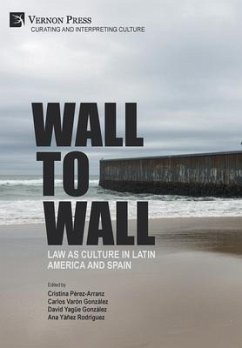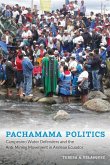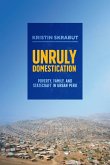'Wall to Wall: Law as Culture in Latin America and Spain' comprises interventions from a wide array of scholars based in the US, Spain, and Latin America, exploring the encounter of Hispanophone cultures and the law. Its contributors delineate a fraught relationship of complicity, negotiation, and outright confrontation covering five centuries and a truly global landscape, from Inquisitorial processes at the onset of the Spanish Empire to last-ditch plans to preserve it in the 19th century Philippines, to the challenges to contemporary articulations of the nation-state in Catalonia. Beyond single, specialized time-period and national cultures, 'Wall to Wall' embraces and showcases the heterogeneity of the field, covering both well-known territory (Argentina, Mexico, Spain) and often-neglected cultures (Venezuela, Philippines, and indigenous communities in the Yucatan area), as well as problems that cannot be narrowed down to the nation-state (exile, independence processes, non-state laws, translation of foreign cultures). Contributors include: Aurélie Vialette, Daniel Aguirre-Oteiza, Daniela Dorfman, María Fernanda Lander, Gloria Elizabeth Chacón, Iván Trujillo, Benjamin Easton, Pauline de Tholozany, Lauren G.J. Reynolds, Ignasi Gozalo-Salellas, and Gabriela Balcarce. The chapters included foreground the conceptual diversity of the field, in dialogue with issues in literary and visual culture, (post-)colonialism, race, nationalism, gender, and class. Not only do they place vernacular objects in dialogue with current international concepts and methods, but these essays also aim to advance an autonomous conceptual and theoretical work-based approach. Its chapters aspire to enter a global discussion around the state-centered aspiration to shape culture and the many literary and cultural practices that escape it; researchers of those issues and Latin American and Iberian studies will find new venues to rethink their global archive.
Hinweis: Dieser Artikel kann nur an eine deutsche Lieferadresse ausgeliefert werden.
Hinweis: Dieser Artikel kann nur an eine deutsche Lieferadresse ausgeliefert werden.








